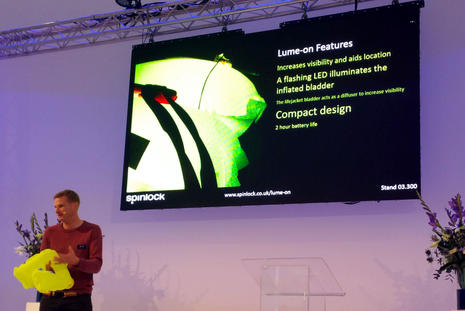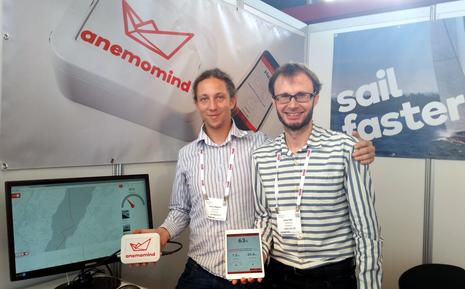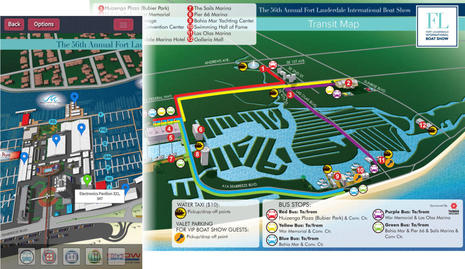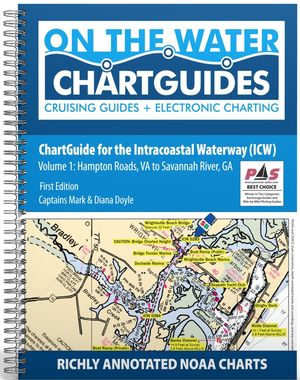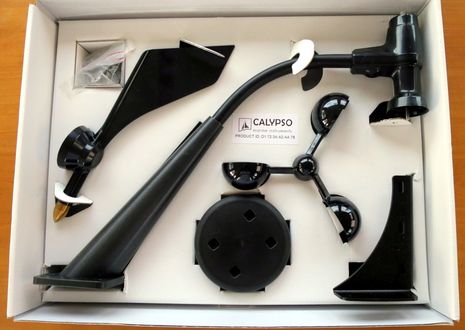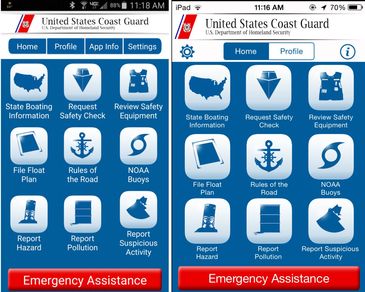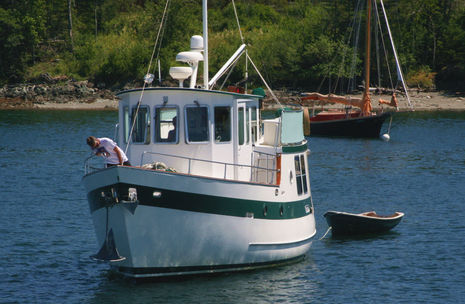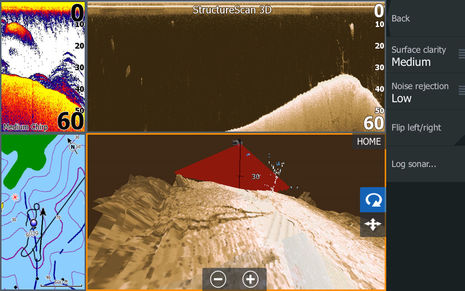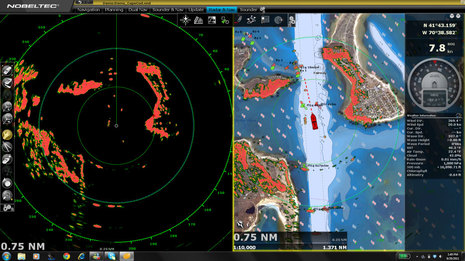Hobie/Lowrance fishing “kayak” & Simrad TripIntel
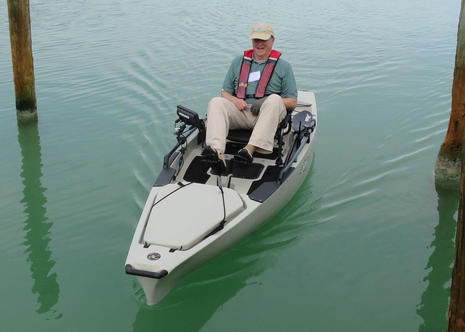 After four marine events (and three round trips to Florida) in five weeks, I’ve toured or ridden a lot of nice boats or at least interestingly equipped ones. But some solo time on a Hobie Mirage Pro Angler 14 during the Navico writer’s event at Hawk’s Cay easily stands out. I think the design is only filed in Hobie’s kayak section because “fishing kayaks” have evolved so fast a better category name hasn’t emerged yet, and that thought doesn’t include the unusual Mirage pedal-to-fin propulsion. Whatever you call it, this is a cool boat, and not just for fishing (though it must be a blast to play a big one from that low throne)…
After four marine events (and three round trips to Florida) in five weeks, I’ve toured or ridden a lot of nice boats or at least interestingly equipped ones. But some solo time on a Hobie Mirage Pro Angler 14 during the Navico writer’s event at Hawk’s Cay easily stands out. I think the design is only filed in Hobie’s kayak section because “fishing kayaks” have evolved so fast a better category name hasn’t emerged yet, and that thought doesn’t include the unusual Mirage pedal-to-fin propulsion. Whatever you call it, this is a cool boat, and not just for fishing (though it must be a blast to play a big one from that low throne)…



